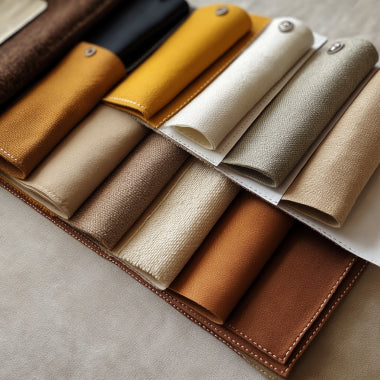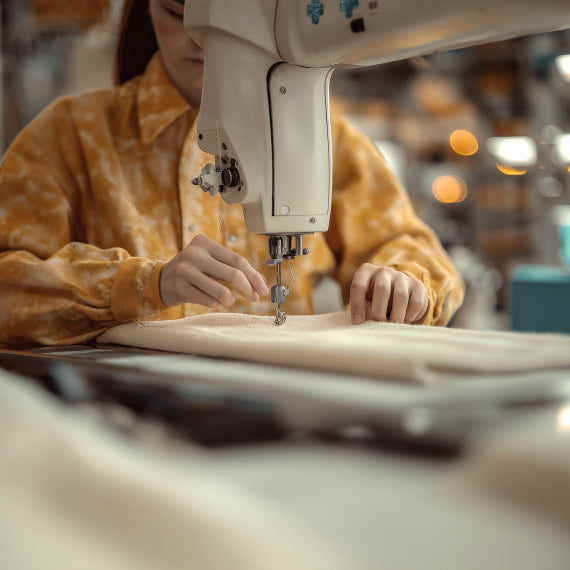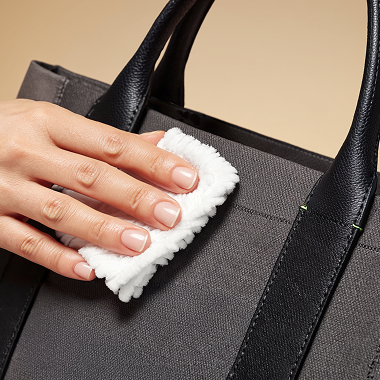At KOLEF, sustainability is more than a value—it’s a way of life. We believe that small, conscious choices in our daily routines can create significant, positive impacts on the planet. Whether you’re looking to make eco-friendly lifestyle changes or embrace sustainable fashion, here are practical tips inspired by KOLEF’s commitment to a greener, more mindful future.
1. Mindful Consumption
Becoming more mindful about what you purchase is an easy way to live sustainably:
- Choosing Quality Over Quantity: Invest in durable, high-quality products that stand the test of time. KOLEF handbags are designed to be both timeless and functional, reducing the need for frequent replacements.
- Opt for Sustainable Brands: Support eco-conscious brands that prioritise recycled materials and ethical manufacturing. Look for certifications that ensure transparency.
- Avoid Impulse Purchases: Before buying, ask yourself, "Do I really need this?" Reducing unnecessary consumption helps minimise waste.
2. Reduce, Reuse, Recycle
The sustainability mantra remains as powerful as ever:
- Reduce: Cut back on single-use items. Carry reusable water bottles and shopping bags. KOLEF’s multifunctional designs encourage buying less while doing more.
- Reuse: Repurpose items creatively. For example, an older KOLEF bag can double as chic storage or even a home garden planter.
- Recycle: Ensure you’re recycling correctly—clean and dry items to avoid contamination.
3. Eco-Friendly Transportation
Transportation is a significant source of carbon emissions. Reduce your impact by:
- Walking or Biking: Choose active transportation whenever possible to benefit both the environment and your health.
- Public Transport: Take advantage of buses, trains, and other efficient options.
- Carpooling: Share rides with friends or colleagues to cut down on emissions.
4. Sustainable Fashion Choices
Fashion doesn’t have to cost the planet:
- Support Eco-friendly Brands: Choose brands like KOLEF, which use recycled materials and champion ethical practices.
- Build a Capsule Wardrobe: Curate versatile, high-quality pieces that can be mixed and matched for endless looks.
- Shop Second-Hand: Thrift shopping or buying preloved items is a sustainable way to extend the life of products.
5. Energy Conservation
Reduce your energy usage with these simple changes:
- Switch to LED Bulbs: LEDs consume less energy and last longer than traditional lightbulbs.
- Unplug Devices: Save power by unplugging electronics when not in use.
-
Use Energy-Efficient Appliances: Choose appliances designed to minimise energy and water usage.
6. Sustainable Food Choices
Food choices have a direct environmental impact:
- Eat Local and Seasonal: Reduce food miles by supporting local growers and eating in-season produce.
- Embrace Plant-Based Meals: Incorporate more plant-based foods to significantly reduce your carbon footprint.
- Minimise Food Waste: Plan meals, store food properly, and compost organic scraps.
7. Water Conservation
Water is a precious resource. Conserve it with these steps:
- Fix Leaks: Address any leaks promptly to save water.
- Shorten Showers: Use water-saving showerheads and keep showers brief.
- Full Loads Only: Run dishwashers and washing machines only when fully loaded for maximum efficiency.
8. Eco-Friendly Home Practices
Make your home an eco-friendly haven:
- Use Natural Cleaners: Swap chemical-heavy products for natural, non-toxic options.
- Bring in Indoor Plants: Improve air quality while adding greenery to your space.
- Start Composting: Recycle organic waste to enrich your garden soil.
9. Community Involvement
Amplify your efforts by engaging with others:
- Join Environmental Groups: Connect with local sustainability initiatives.
- Volunteer: Participate in clean-up drives, tree planting, or other eco-friendly activities.
- Educate and Advocate: Share your sustainability journey to inspire others.
10. Continuous Learning
Sustainability is an ongoing journey:
- Stay Informed: Follow blogs, podcasts, and accounts that offer tips on eco-friendly living. The KOLEF Journal is a great place to start!
- Experiment and Adapt: Try new practices and adjust your habits to align with sustainable goals.
Incorporating sustainability into your life doesn’t have to be overwhelming. By making small, intentional changes, you can help create a healthier planet while inspiring others to do the same. At KOLEF, we’re here to support your journey with thoughtfully designed products that balance style, practicality, and sustainability. Together, we can create a brighter, more sustainable future.









Leave a comment